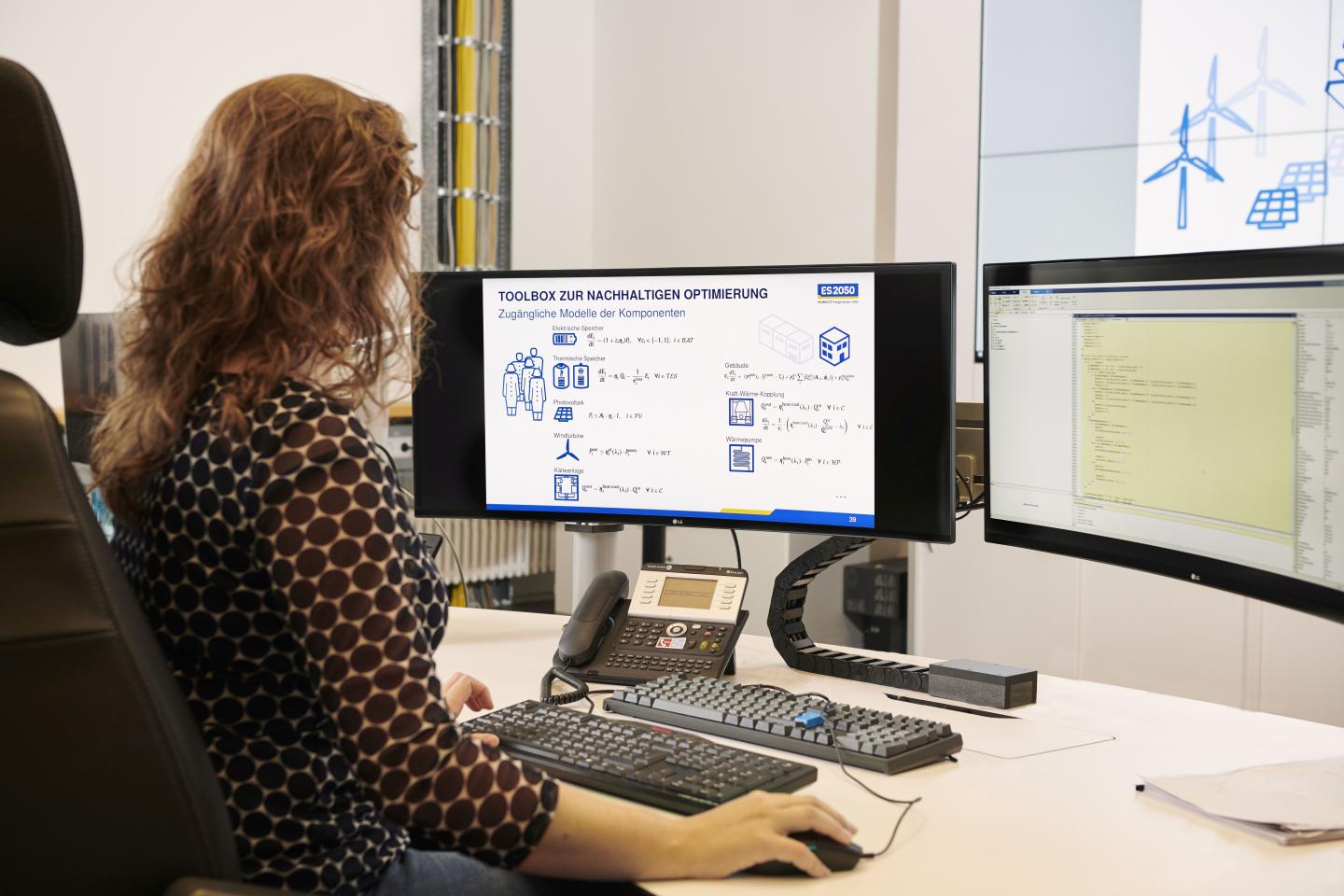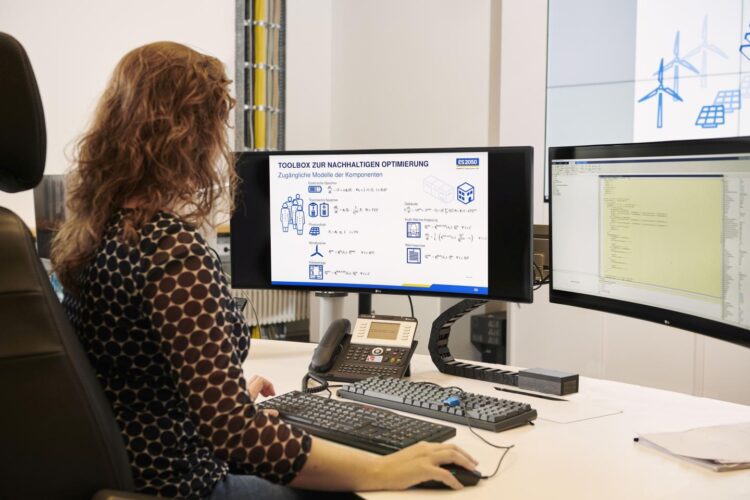KIT coordinates MeKIDI project on digitization of processes in the energy sector

Credit: Amadeus Bramsiepe, KIT
Valuable support or job killer? Artificial intelligence (AI) promises to enhance efficiency of business processes, but also changes the environment of workers. Profitable use of AI technologies for digitization in the energy sector and ways for human beings to remain in the center are studied by the new MeKIDI project coordinated by Karlsruhe Institute of Technology (KIT). The project is aimed at finding a good balance between technical opportunities, company goals, and individual interests.
Energy transition, declining income, increasing competitive pressure: The energy sector is facing big challenges. Companies of this branch are working in a complex process and system environment. Still, many tasks are executed manually. For current digitization of business processes, however, many companies increasingly apply technologies based on artificial intelligence (AI). Projects using chatbots for counter reading and robotic process automation (RPA) for automatic further processing of these inputs have already produced promising results. At the same time, use of AI technologies changes the organization and work environment of the staff.
“Valuable support or job killer – assessment of AI technologies at work often results in one of these extremes. We now wish to enable a more differentiated analysis,” says Professor Alexander Mädche, Head of the Information Systems & Service Design Group of KIT’s Institute of Information Systems and Marketing (IISM). The group coordinates the project “Menschengerechte KI-basierte Digitalisierung in der Energiewirtschaft” (Humane AI-based digitization in the energy sector), MeKIDI for short. Scientists study the impacts of AI technologies on the staff. On this basis, they will then develop methods for the use of AI technologies in human-centered process digitization. “We follow a socio-technical paradigm to create a good balance between technical opportunities, organization, company goals, and interests of the individual,” Mädche says.
Actors Jointly Shape the Digital Work Environment
MeKIDI will develop principles, according to which utilities and their service providers can use AI technologies to improve business processes, reduce costs, and facilitate routine tasks while meeting the interests of the staff and the common good. The project also covers practical implementation of human-centered AI-based process digitization approaches. In three complementary “experiment spaces,” project partners study the automation of processes with the help of robots (robotic process automation), collaboration of humans and chatbots, and AI-based assistants using virtual reality technologies. All actors of MeKIDI, including decision-makers, staff, social and company partners, are continuously involved in shaping the digital working environment.
MeKIDI started in October 2020 and is scheduled for a duration of two years. Apart from KIT that coordinates the project, the project partners are hsag Heidelberger Services AG, Soluvia Energy Services GmbH, Stadtwerke Bretten GmbH, and the World of VR GmbH. The project is funded with more than EUR 730,000 by the Federal Ministry of Labor and Social Affairs (BMAS) under the new focus “Learning and experiment spaces” of the initiative “New quality of work” (INQA).
###
More information:
Information Systems & Service Design research group:
http://issd.
“Learning and experiment spaces” of BMAS:
https:/
Initiative “New quality of work” (INQA):
https:/
Press contact:
Justus Hartlieb,
Press Officer,
Phone: +49 721 608-41155,
Email: [email protected]
Being “The Research University in the Helmholtz Association,” KIT creates and imparts knowledge for the society and the environment. It is the objective to make significant contributions to the global challenges in the fields of energy, mobility and information. For this, about 9,300 employees cooperate in a broad range of disciplines in natural sciences, engineering sciences, economics, and the humanities and social sciences. KIT prepares its 24,400 students for responsible tasks in society, industry, and science by offering research-based study programs. Innovation efforts at KIT build a bridge between important scientific findings and their application for the benefit of society, economic prosperity, and the preservation of our natural basis of life. KIT is one of the German universities of excellence.
Media Contact
Monika Landgraf
[email protected]
Original Source
https:/





